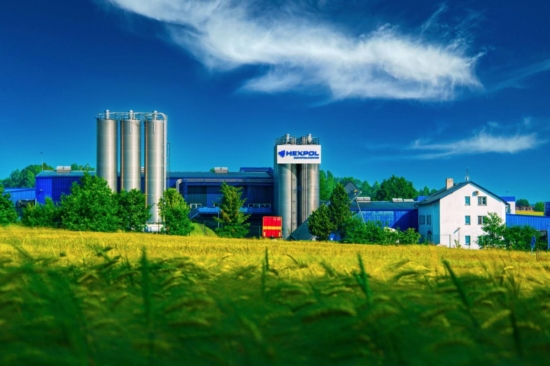Hexpol makes European devulcanization investment
 (Photo: Hexpol)
(Photo: Hexpol)
The rubber compounding arm of the Swedish Hexpol Group has invested in a devulcanization line in Europe. The company reports that this enables mechanical devulcanization of rubber in-house and supports the transition to a circular economy. Specifically, the investment will enable Hexpol Compounding to produce “several thousand tons of compounds with devulcanized rubber content per year” in Europe.
Hexpol’s devulcanization process adds no additional chemicals. It involves solely the use of mechanical forces like shear, compression, and temperature to break down the crosslinking bonds of the cured rubber with the help of a specific extruder. The new extruder will be installed at the Hexpol Compounding site in the Czech Republic in late 2024, where it will provide devulcanization services to the other European HEXPOL Compounding sites to ensure that a broad customer base can join the circle.
Hexpol Compounding reports that it has worked on using cured compound scrap and waste, which are unavoidable side products of rubber part production, for years. In the past, the converter paid for the disposal of their rubber waste, which often ended in landfills or was incinerated. In some cases, rubber waste was ground and reused, but until now, it was mainly used as a filler in low-quality applications. Devulcanization offers an opportunity to keep these valuable resources in circulation and reduce the demand for virgin materials.
“Hexpol´s target is to reprocess cured rubber from post-industrial sources and reuse it for typical rubber applications in the automotive or building and construction industry”, explained Carsten Rüter, president of Hexpol Rubber Compounding Europe & Asia. “Instead of paying for disposal, we support our customers in transforming their rubber production offcuts into a new raw material with a reduced product carbon footprint.”
Ralph Wolkener, President Hexpol Compounding Europe & Asia commented: “We are proud to offer a variety of compound solutions with recycled content already today. Soon, we will add rubber recycling to our services. Our customers are becoming our business partners in this process, which involves collecting and sorting their production side products, until Hexpol transforms them into devulcanized raw materials again. We believe our devulcanization process could also be extended to post-consumer rubber recycling”.
Norbert Niemand, managing director at Hexpol Lesina added: “It is part of Hexpol’s service to adjust compound recipes based on devulcanized rubber and other renewable raw materials to achieve the same performance as compounds based on standard raw materials”.




Comments